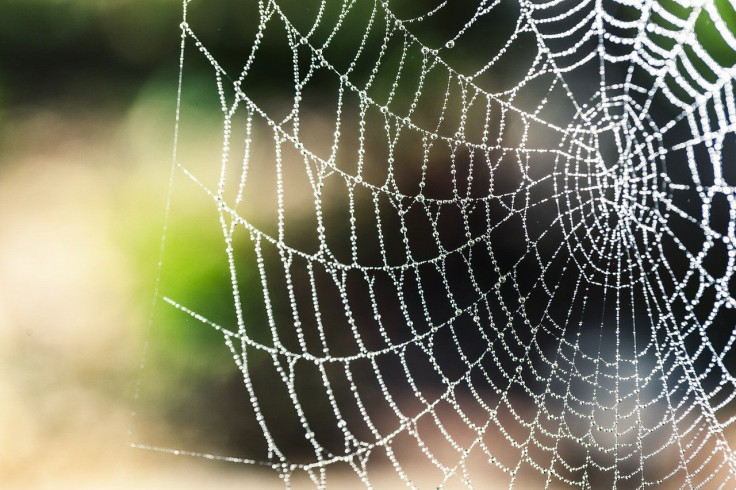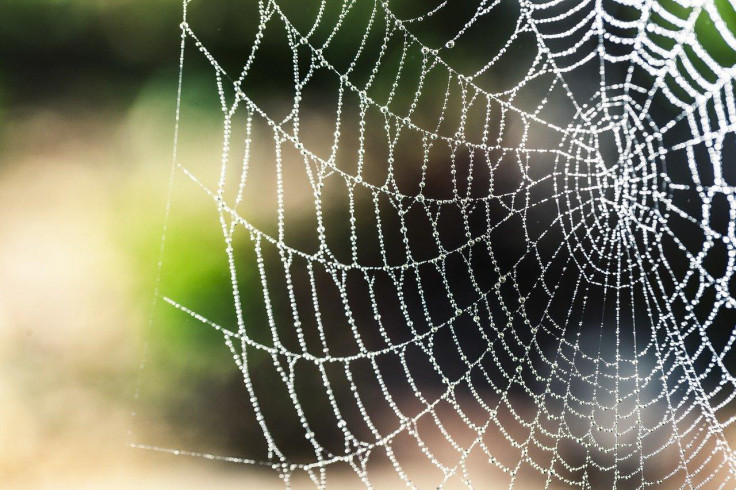Surviving Sexual Cannibalism: Male Spiders Catapult Off Females To Avoid Being Eaten [Watch]

How do male spiders avoid getting cannibalized by females after mating? In a certain species, the males actually catapult themselves away at surprising speeds, a team of researchers has found.
Some male spiders put quite a lot at risk just to mate because their females can cannibalize them after sex. As such, these males have developed various ways to survive, from ripping their own legs off to tying up the females' legs before mating.
In a new study, published Monday in Current Biology, a team of researchers found a rather interesting method that males of the orb-weaving spider (Philoponella prominens) use to avoid getting eaten: they catapult themselves away from their mate right after sex.
The researchers observed the behavior while they were studying sexual selection in the spider, Cell Press reported. These spiders live in groups of up to 300 individuals, and the researchers observed 155 successful matings.
Among these successful matings, 152 (97.4%) males catapulted themselves away from the female after the first mating. The other three were killed and eaten by the females. And when the researchers blocked the males' catapulting behavior, they ended up getting killed by the females.
"These results clearly indicate that the catapulting behavior is an obligatory component of the male mating repertoire and a strategy to avoid the females' attempts at post-mating sexual cannibalism," the researchers wrote.
The males flung themselves away from the females at impressive speeds of up to 88 centimeters per second. In fact, study lead author Shichang Zhang of Hubei University noted that the catapulting behavior was so fast that regular cameras couldn't even capture the details clearly.
The researchers, however, managed to capture high-resolution videos of the behavior. In a video shared by Cell Press, one can see both the normal speed and high-speed video of the males catapulting off the female after mating.
The research team found that the males were catapulting themselves by folding their two front legs against the females' bodies and then extending the joint when they have to leave. The males also ended up spinning about 174 times while they were hurtling through the air, though the exact function of this action is unclear.
However, the catapulting behavior doesn't just help them avoid being eaten by their mates. It also increases their paternity chances. This is because once they mate, the female's eggs aren't immediately fertilized. Instead, the females just store the sperm, and they still have the choice of squeezing them out or killing them, reported Gizmodo.
"Females may use this behavior to judge the quality of a male during mating," Zhang said. "If a male could not perform catapulting, then kill it, and if a male could perform it multiple times, then accept its sperm."
Furthermore, the researchers also found that the males use a sort of silk "safety line" near the web, which they believe will be used if the males want to attempt mating again even after catapulting off. They noted that a male can mate with the same female up to six times.
"We therefore conclude that the catapulting behavior is a direct adaptation to female cannibalism in P. prominens, resulting from sexual conflict," the researchers wrote.

Photo: Benjamin Balazs/Pixabay






